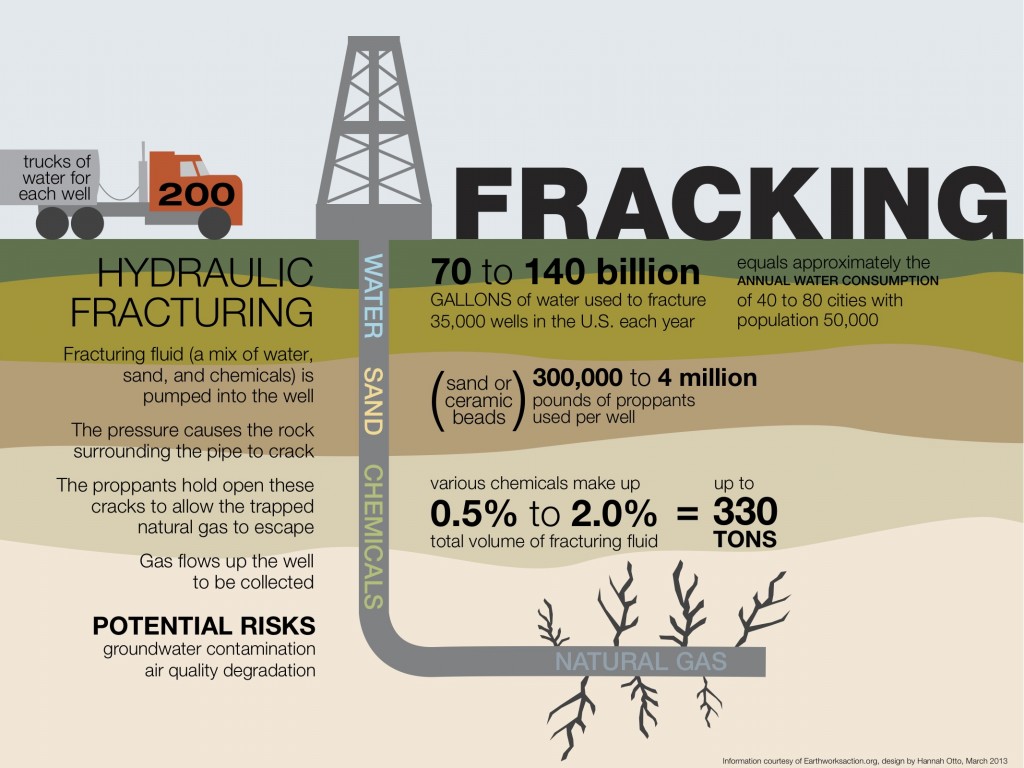A slew of studies released this week, each examining different aspects of the fossil fuel extraction method known as ‘fracking,’ provide new evidence of problems with the practice.
The first, an investigation by the Natural Resources Defense Council and the FracTracker Alliance into oil and gas company violations, found that information about such transgressions is only publicly accessible in three states.
“Although 36 states have active oil and gas development, most state and federal oil and gas regulatory agencies publish little or no information regarding oil and gas companies’ compliance records,” reads the report, Fracking’s Most Wanted: Lifting the Veil on Oil and Gas Company Spills and Violations(pdf).
“Yet in states where data are available, we found significant violations both in number and severity,” it continues. “These violations include a wide range of dangerous infractions like improper well casing, illegal air pollution, failure to conduct safety tests, improper construction or maintenance of waste pits, various spills, contamination of drinking water sources or other water bodies, and non-functional blow-out preventers.”
Based on its findings, the report recommends the creation of a centralized and publicly accessible data hub on “all oil and gas enforcement activities, including citizen complaints, inspections, violation notices, and penalties issued, and incidents, including spills, leaks, blowouts, and worker injuries.”
The NRDC also makes policy recommendations related to holding violators accountable and keeping “repeat offenders” out of local communities.
Hazardous Waste
In Wasting Away: Four states’ failure to manage oil and gas waste in the Marcellus and Utica Shale(pdf), the environmental non-profit Earthworks examines how Pennsylvania, Ohio, West Virginia, and New York neither regulate oil and gas development wastes as hazardous, nor can they assure the public that they are protected from exposure to fracking byproducts.

